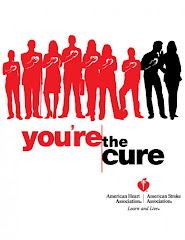Published: August 13, 2012 by Eliza Barclay
Lately, parents, teachers and policymakers have been experimenting with all kinds of different ways to keep unhealthy food out of schools. Some schools are limiting bake sales, as we reported earlier this year, while others are preparing lunches from scratch. Since a lot of these policies are new, it's often hard to tell which ones will be most effective at reversing childhood obesity rates.
But research published online today in the journal Pediatrics suggests that laws implemented a decade ago to restrict snack and drink sales outside of school lunch programs are working to keep kids from gaining extra pounds they don't need.
The study, lead by Daniel Taber, a health policy expert at the University of Illinois at Chicago, looked at kids in fifth through eighth grade from 40 states between 2003 and 2006. The researchers compared changes in body mass index and obesity status in 11 states with strict laws on food sold in schools with similar data from 29 states without such laws.
Overall, they found that the kids in states with detailed nutrition standards were less likely to remain overweight or obese than kids in states without the laws. And they said that kids were more likely to avoid unwanted weight gain if the laws at their elementary schools were reinforced at higher grade levels.
"We went in wanting to see if stronger laws have a big impact, and what emerged was how important it is for these laws to be consistent over time across grade levels," Taber tells Shots. "And the good news is that the trend [nationwide] is that these laws are become stronger over time."
The most effective laws have very specific guidelines for food sold in vending machines, a la carte in the cafeteria, or at campus stores, the researchers say.
The researchers caution that their analysis doesn't prove that the laws cause kids to lose weight. But they note that they controlled for many factors, like income and race, to tease out the impact of the laws on kids' health.
The Robert Wood Johnson Foundation, also a supporter of NPR, funded the study. [Copyright 2012 National Public Radio] For the original article link,
please click here.
 As you may have heard, we’ve recently redesigned our You’re the Cure website. The new site now contains our Illinois blog as well as state advocate stories, state-specific facts and events all in one place! Be sure to bookmark our new address and continue to follow our advocacy work. Our new address is: http://www.yourethecure.org/Illinois
As you may have heard, we’ve recently redesigned our You’re the Cure website. The new site now contains our Illinois blog as well as state advocate stories, state-specific facts and events all in one place! Be sure to bookmark our new address and continue to follow our advocacy work. Our new address is: http://www.yourethecure.org/Illinois







